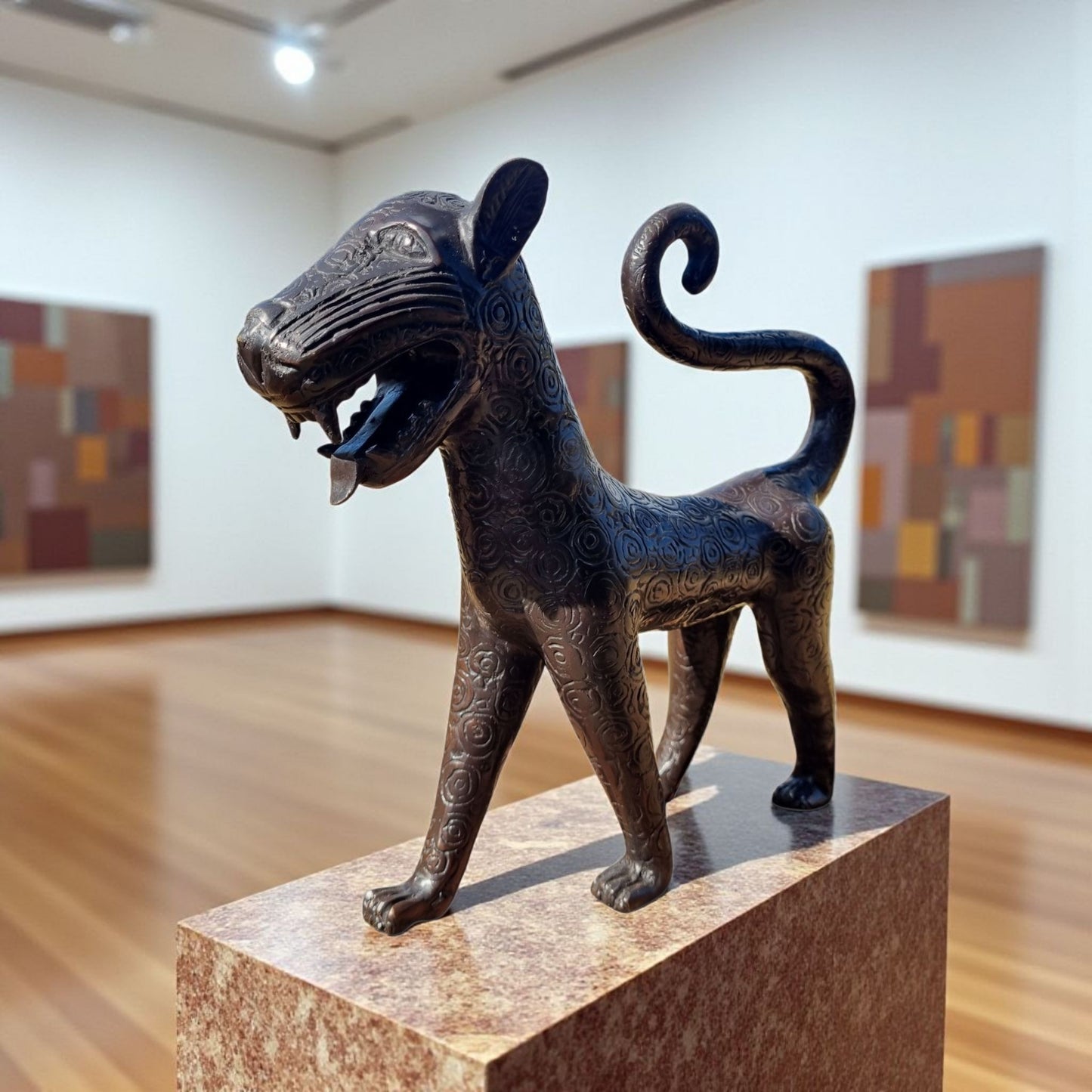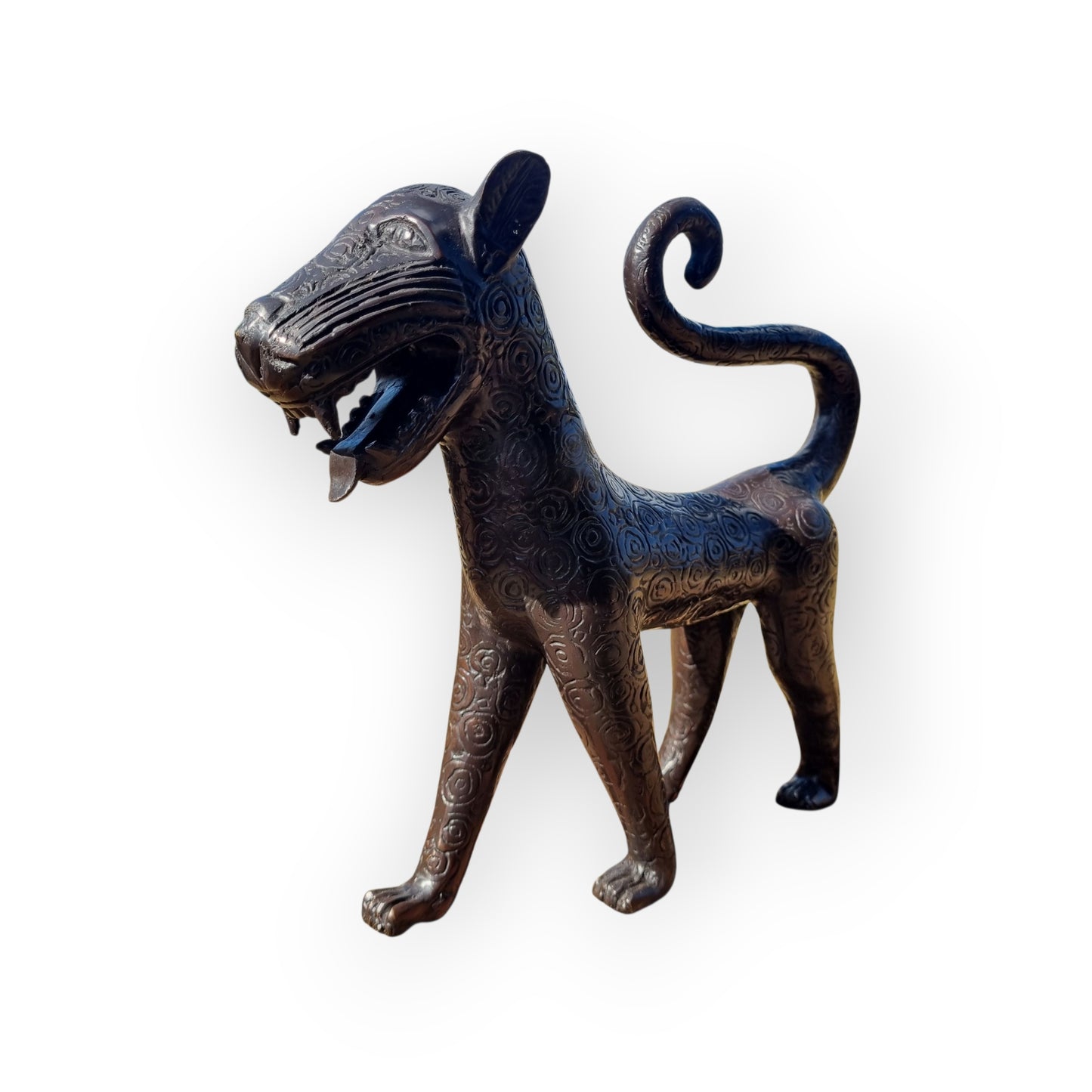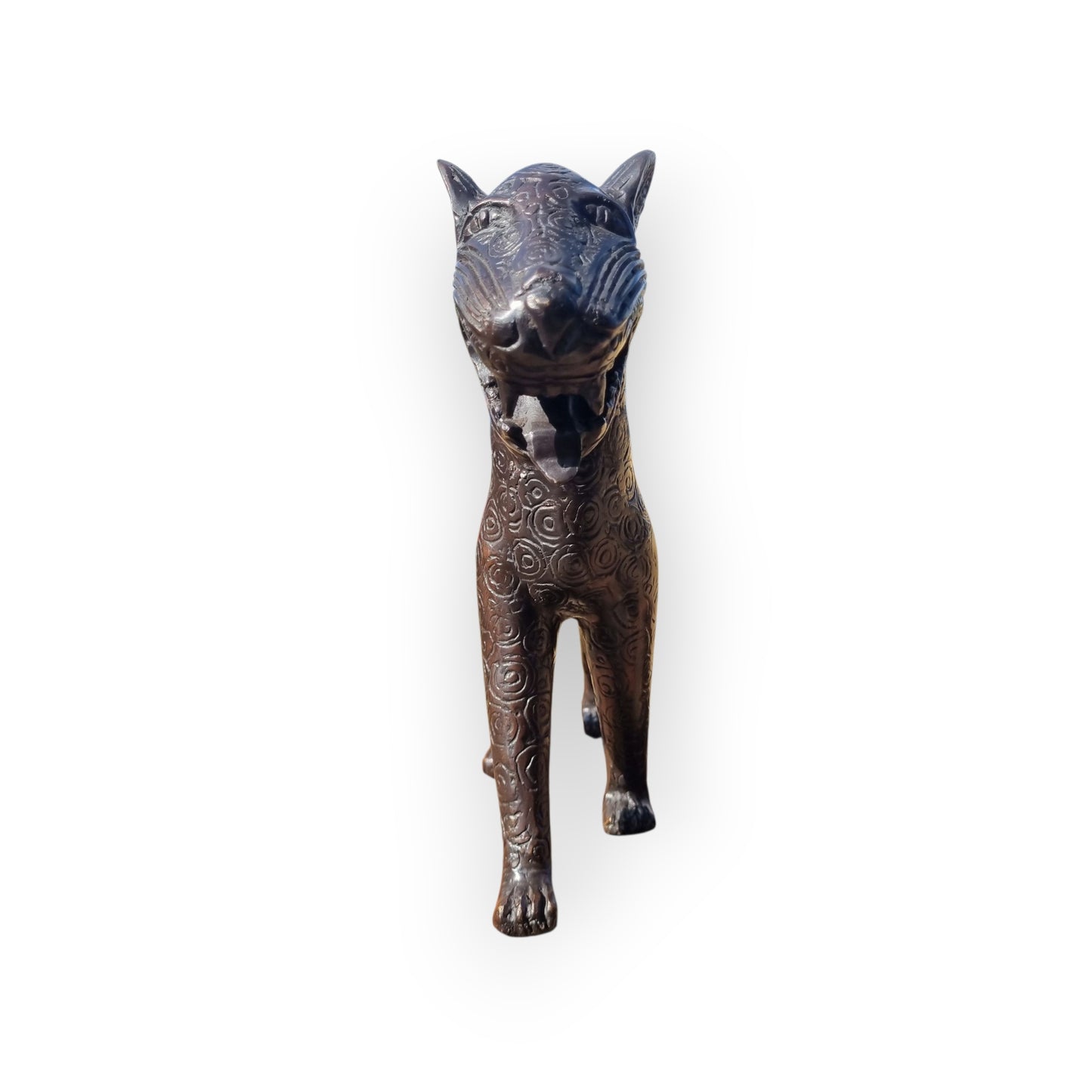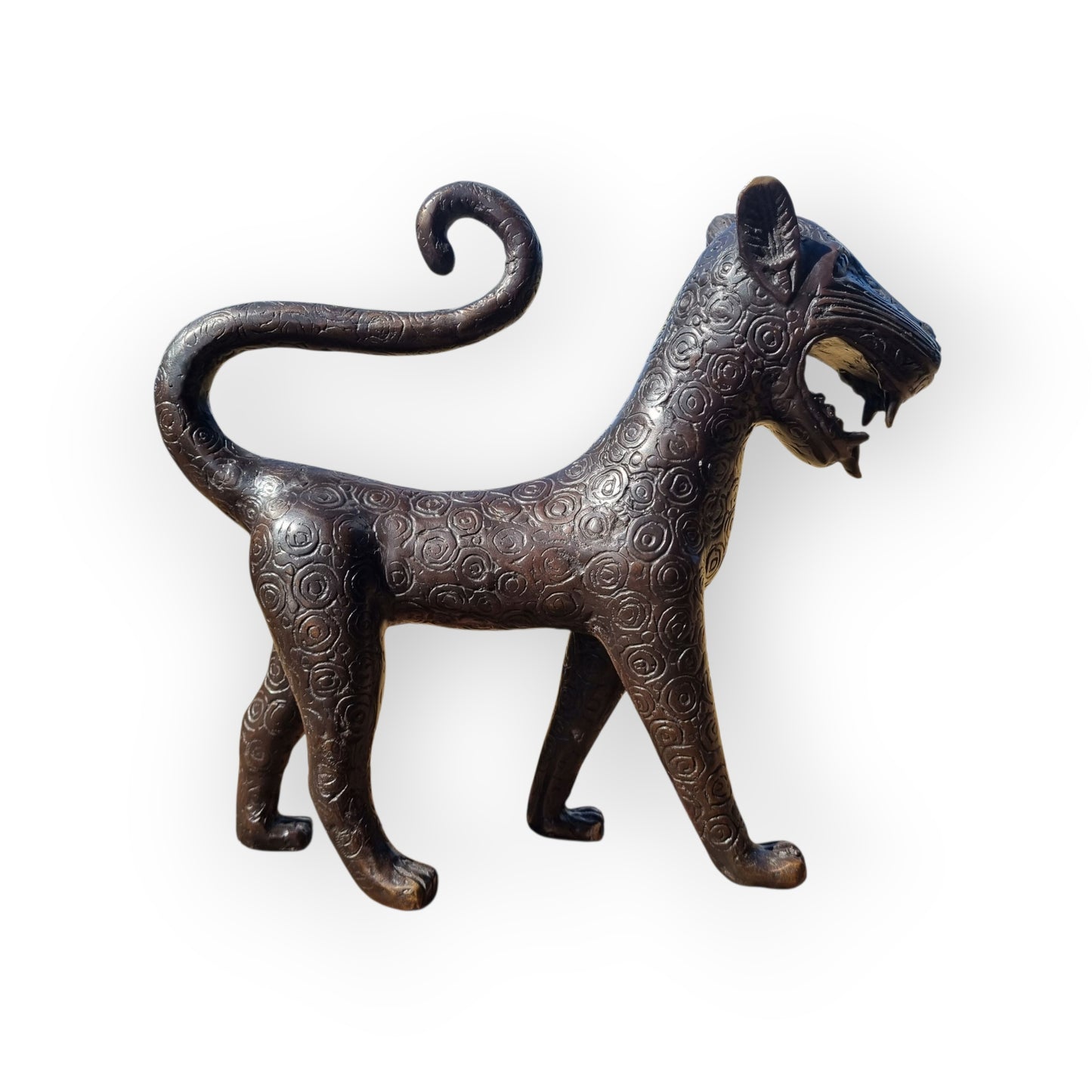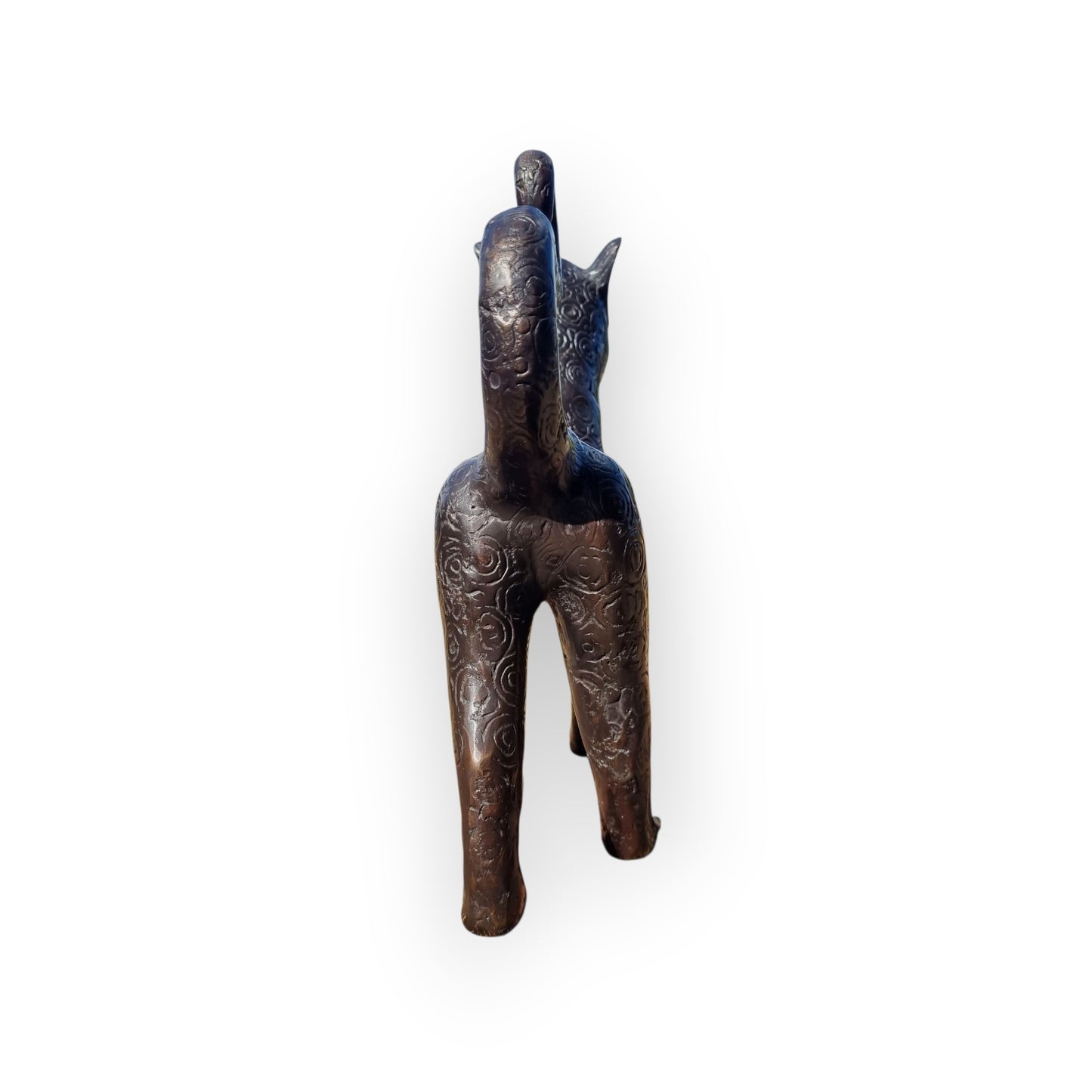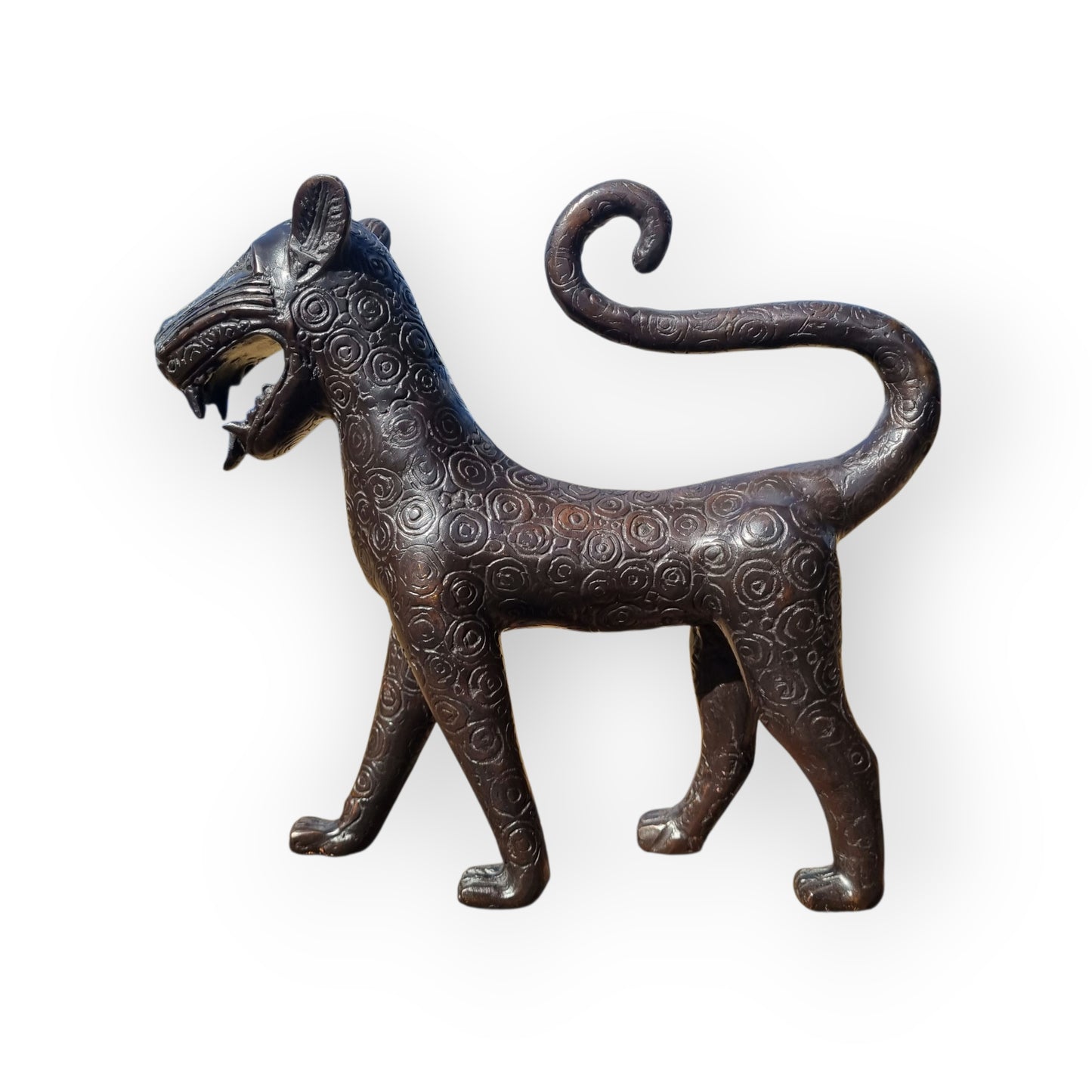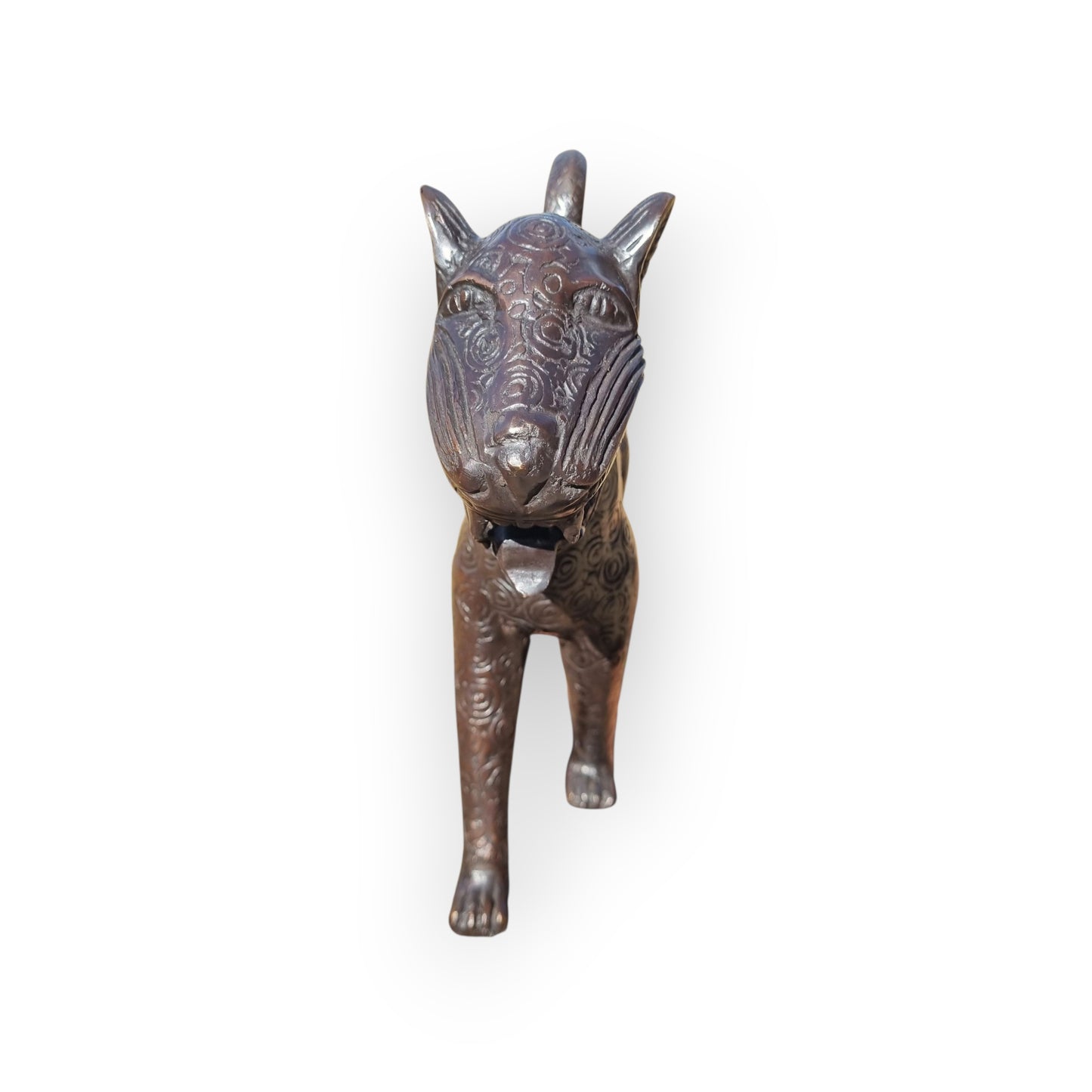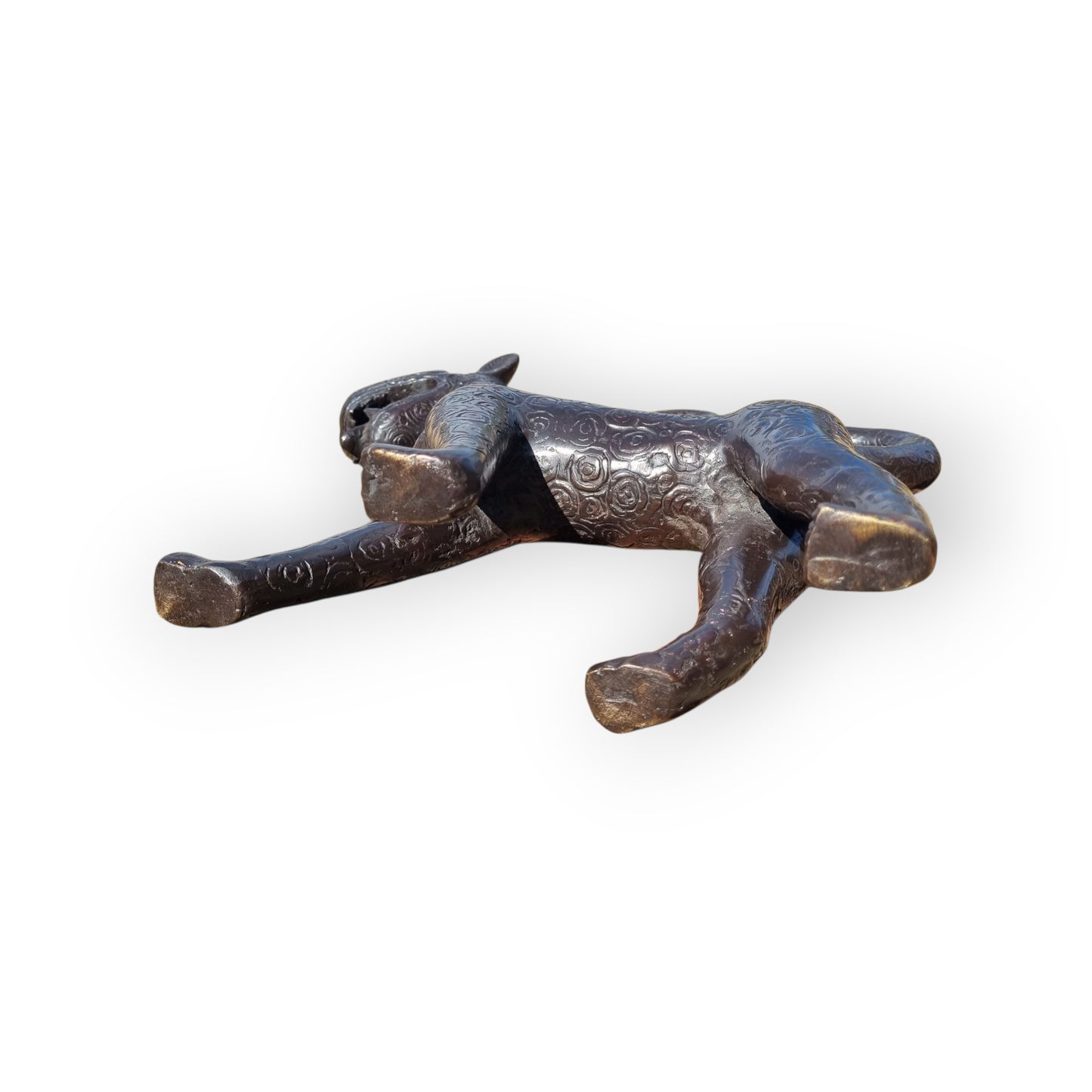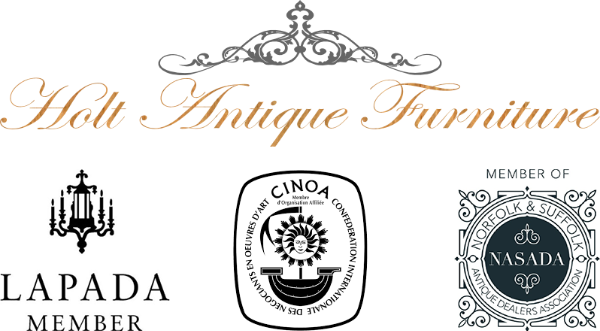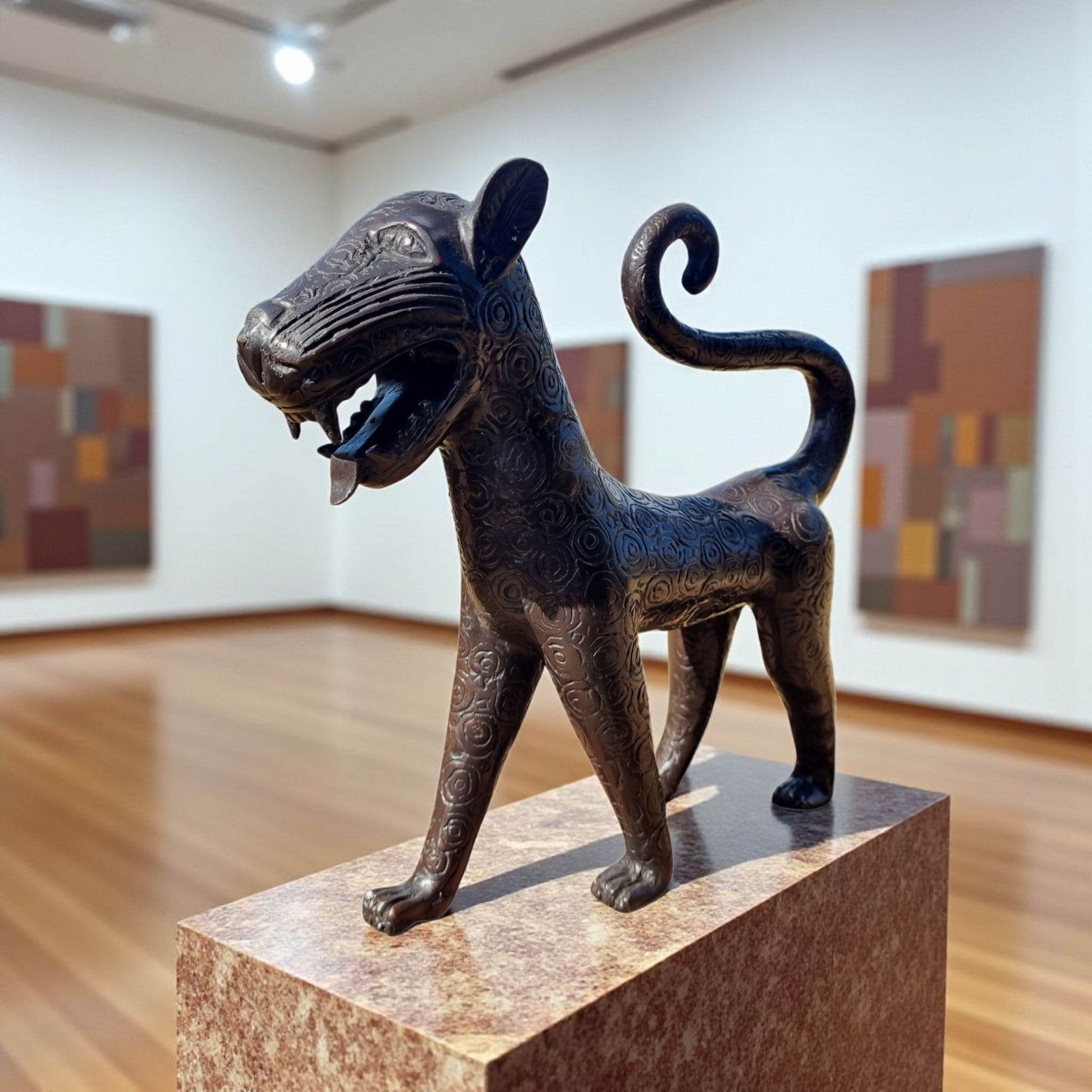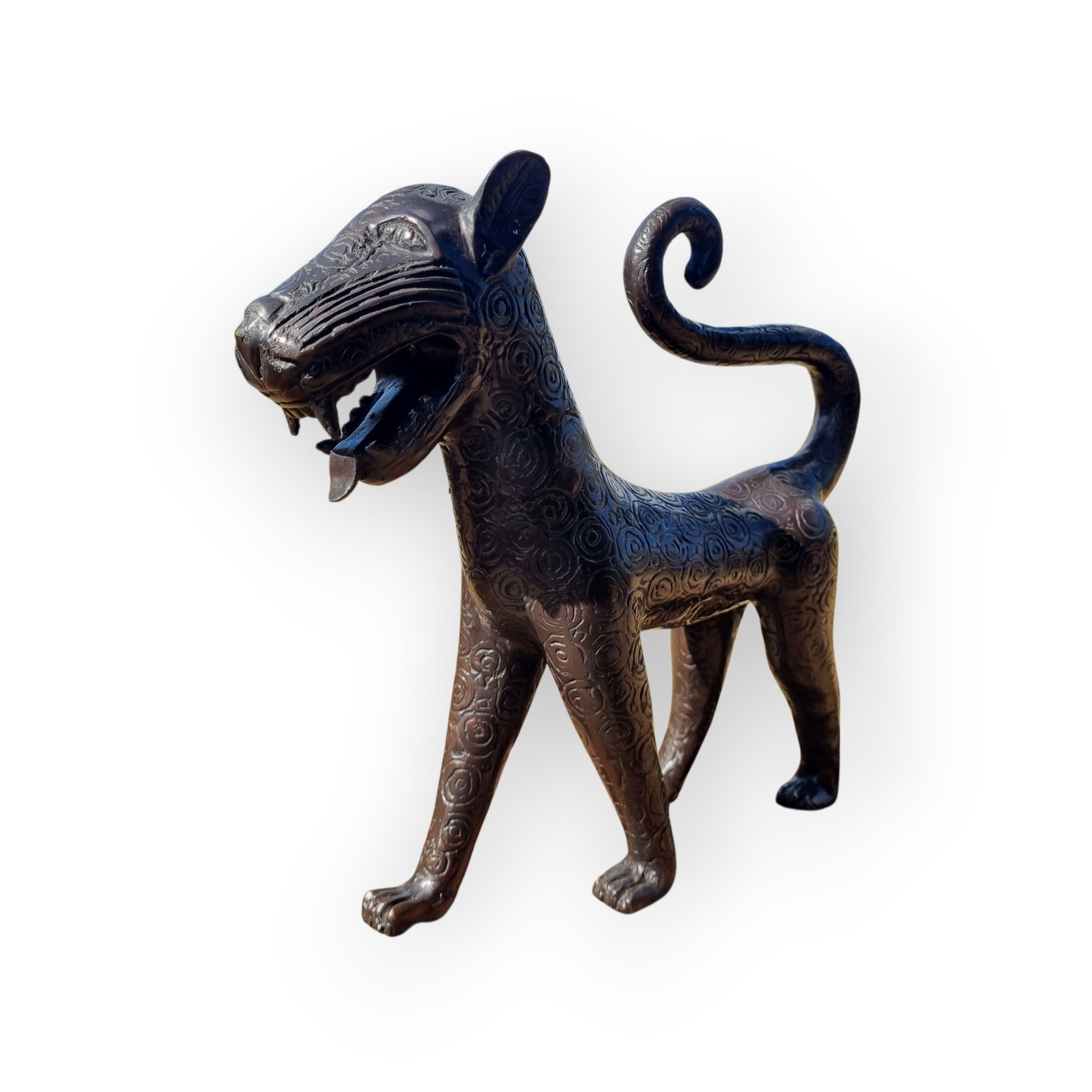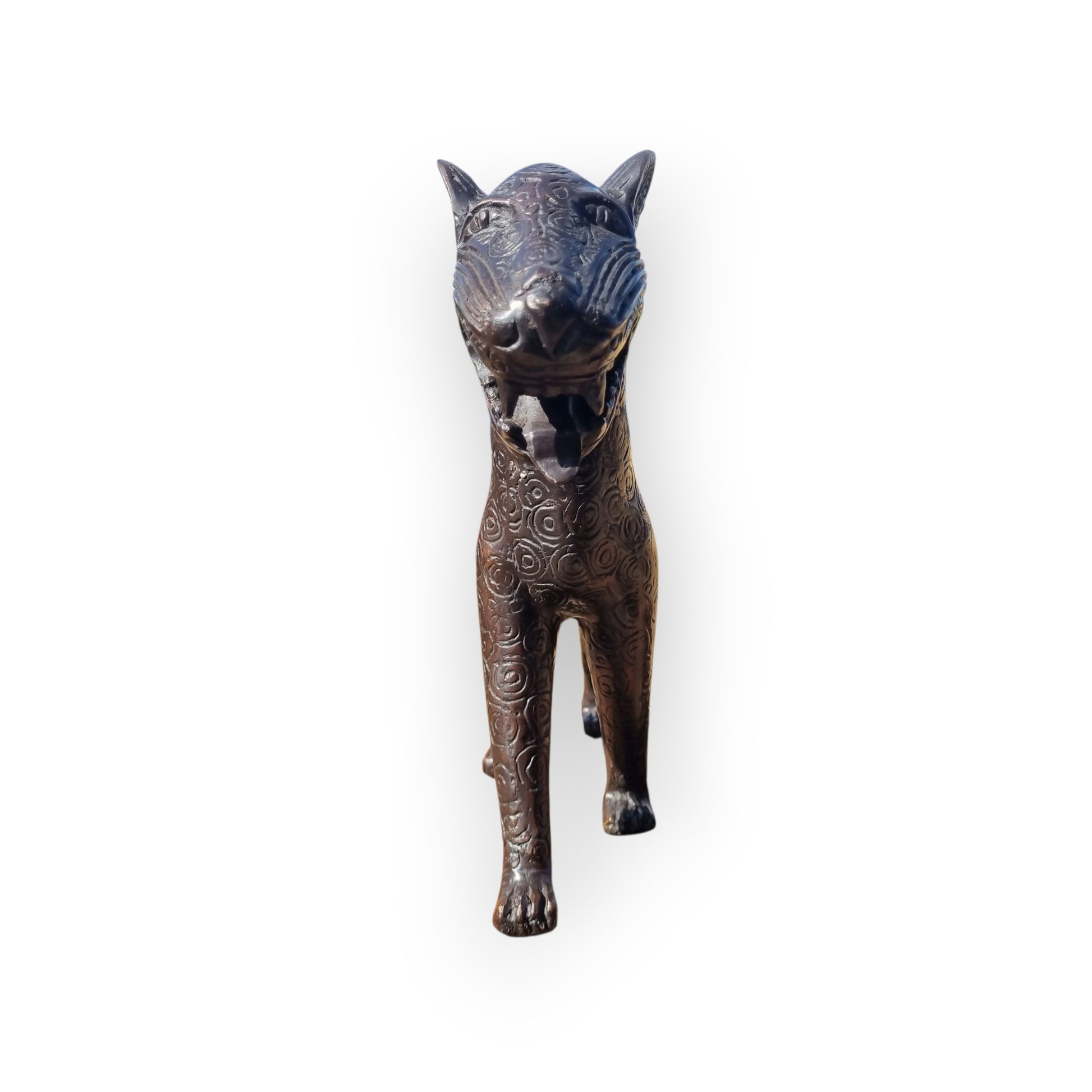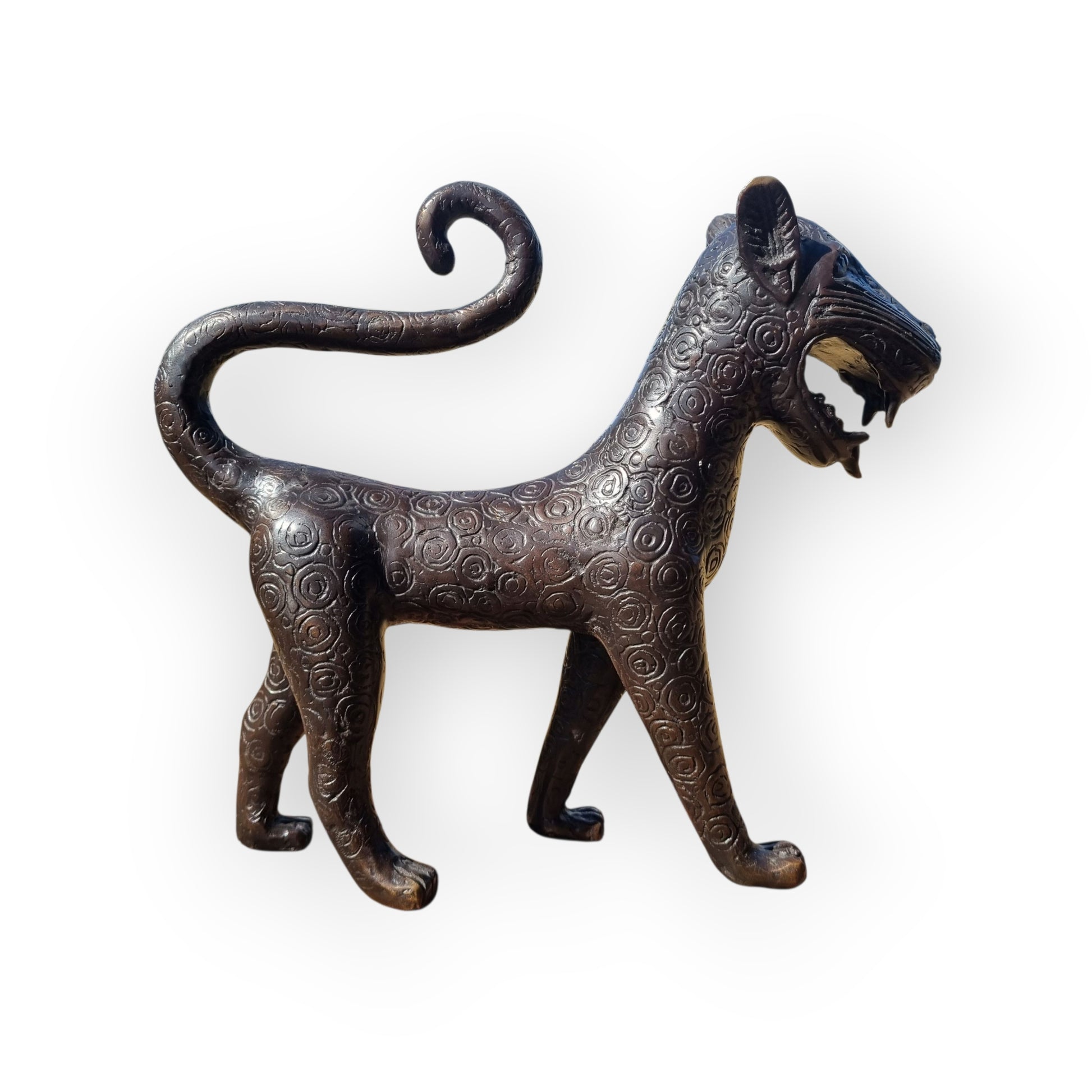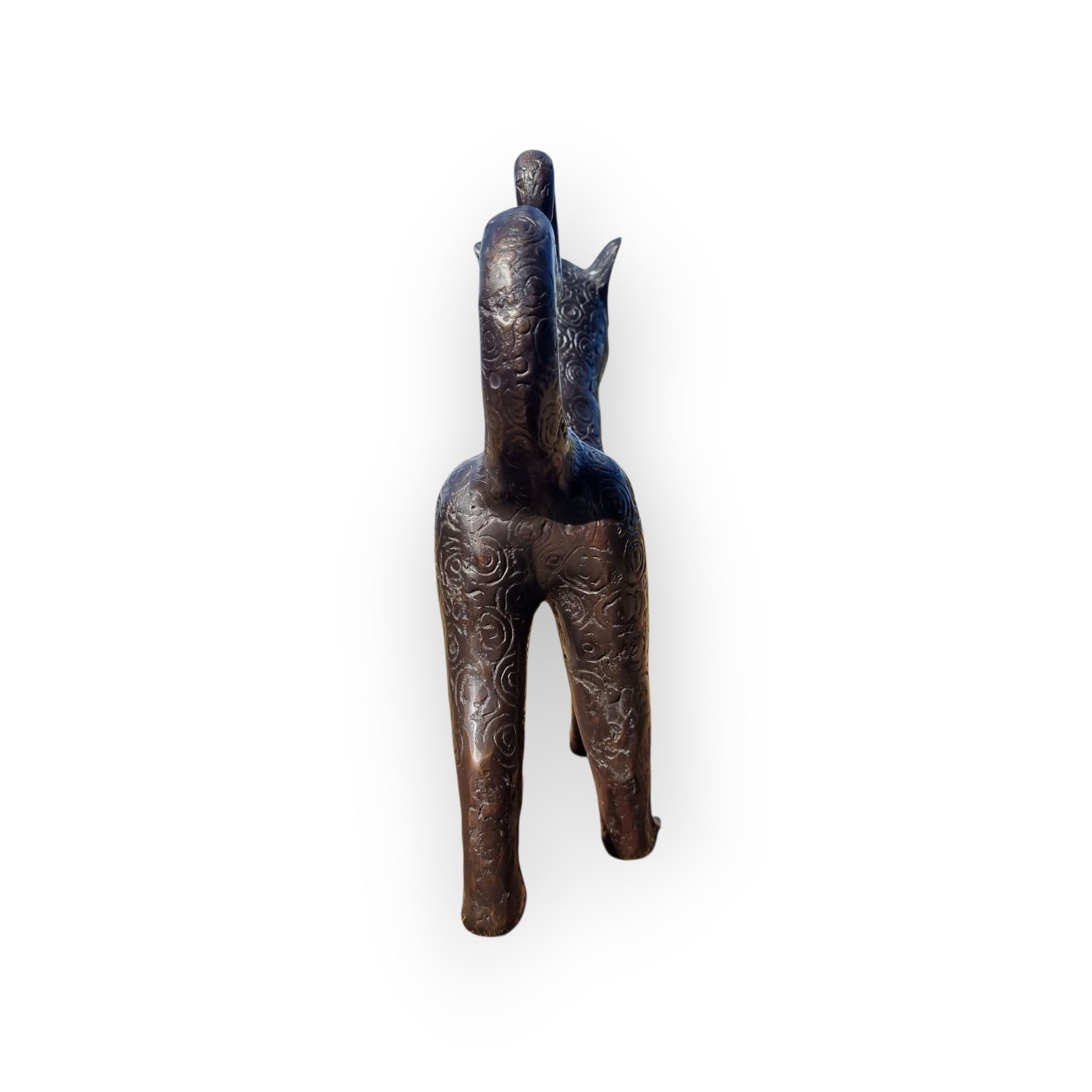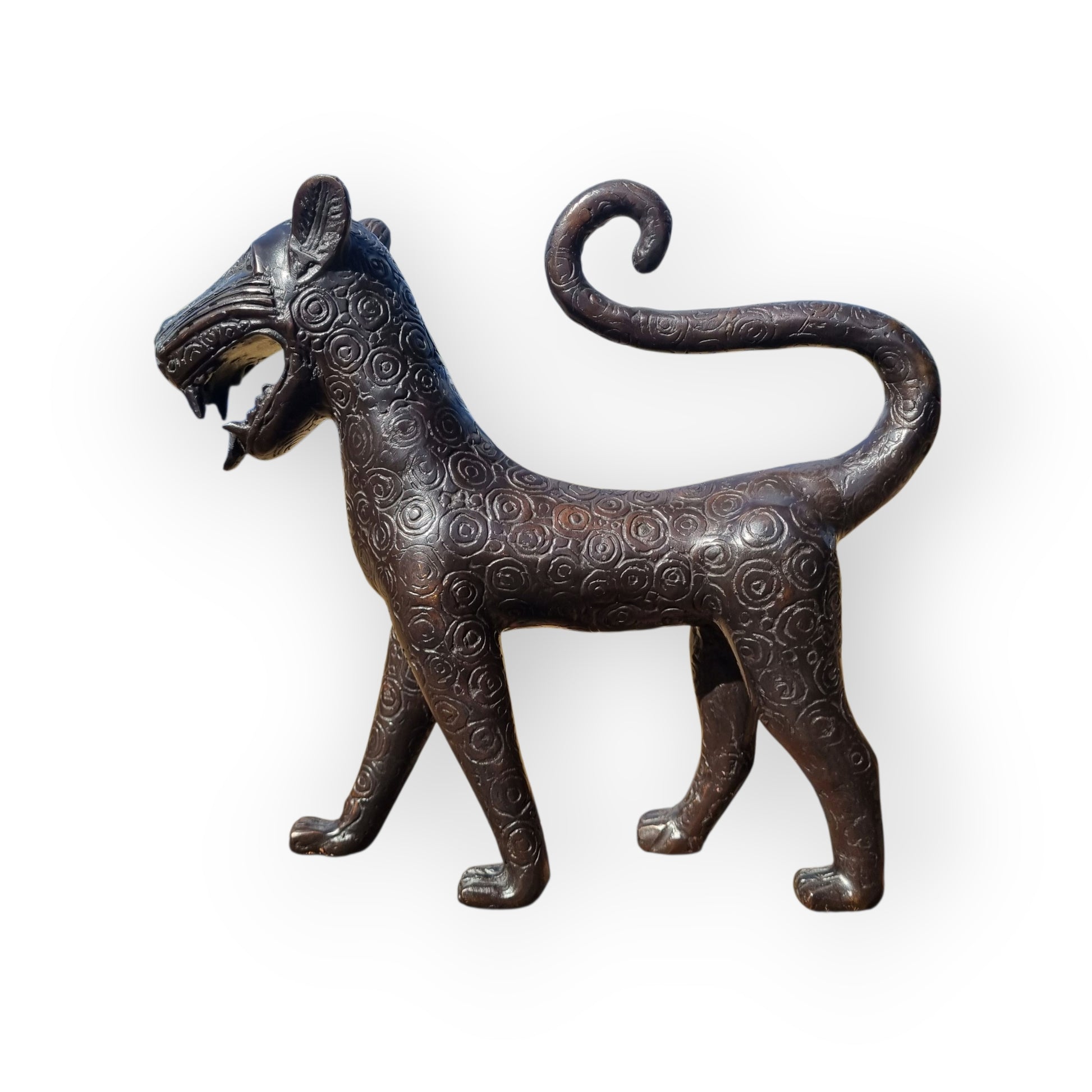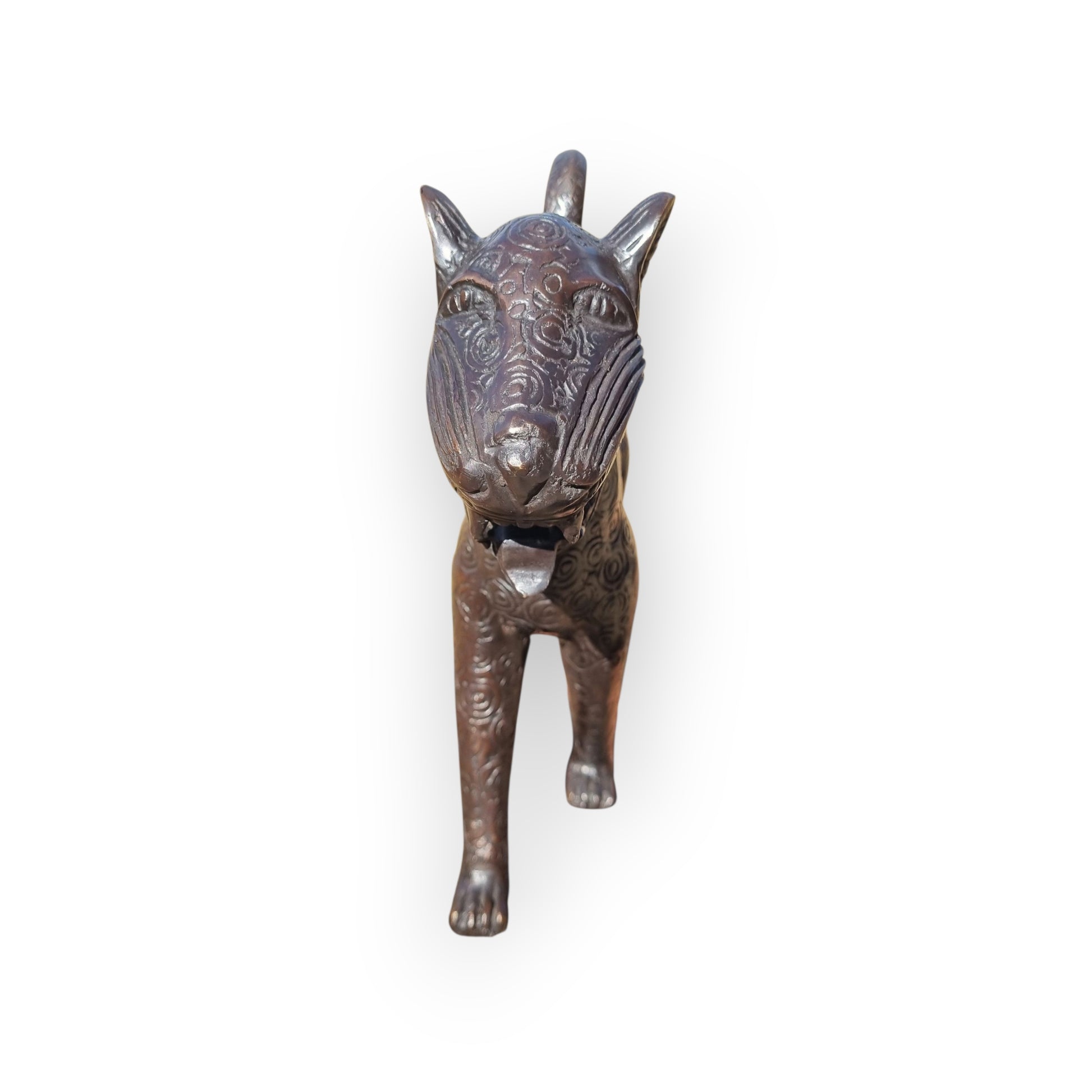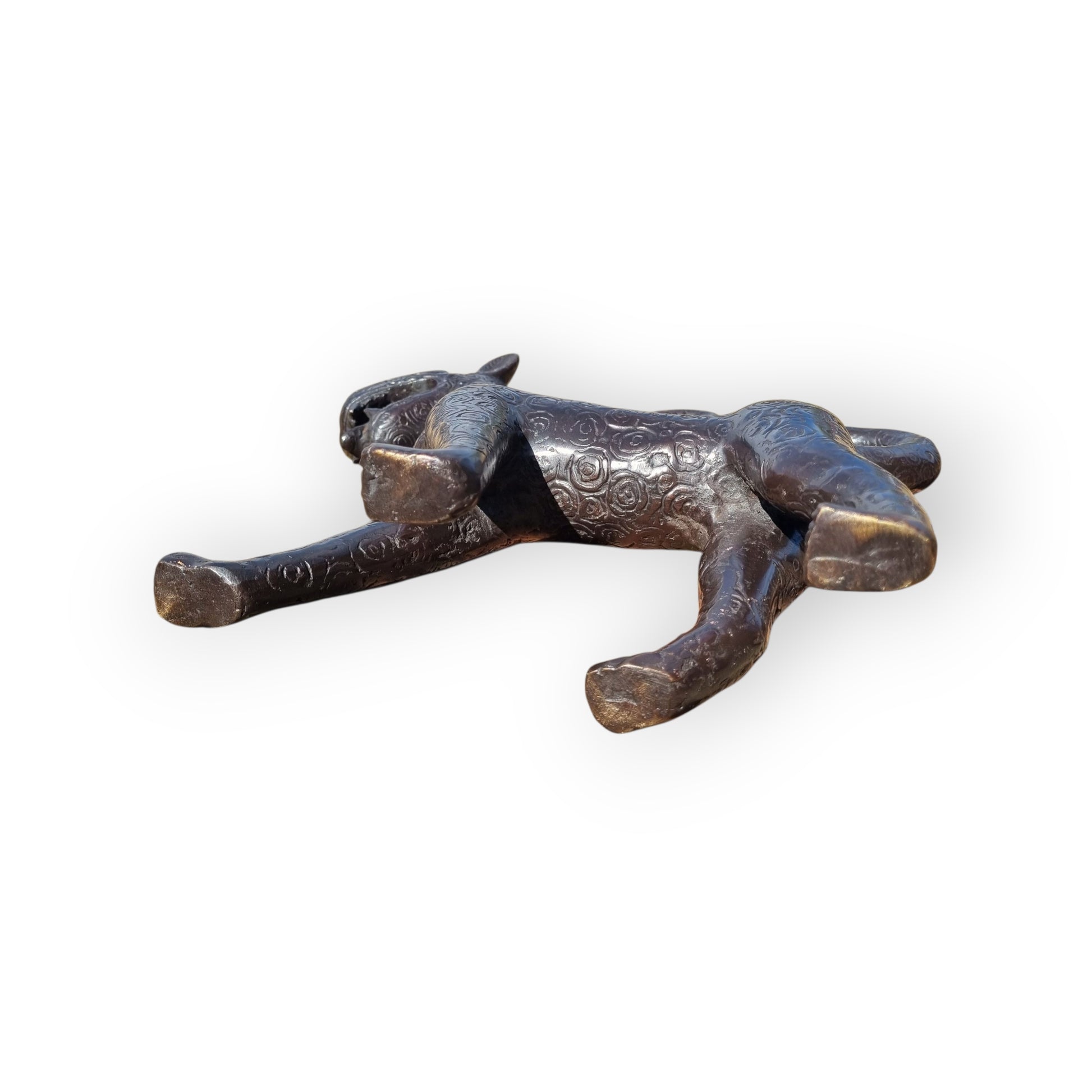Holt Antiques at Walsingham Mill
16th Century Style Decorative Antique Benin Bronze Sculpture In The Form Of A Leopard
16th Century Style Decorative Antique Benin Bronze Sculpture In The Form Of A Leopard


Couldn't load pickup availability
A very decorative Benin bronze leopard. Cast by way of a lost wax process.
Made as a faithful copy in homage to a 16th-century example.
History of the Benin Bronzes - Where are they from & what are they?
The Benin Bronzes come from Benin City, the historic capital of the Kingdom of Benin, a major city-state in West Africa, from the medieval period. Benin City was incorporated into the British Empire from 1897 to 1960 and is now located within the Federal Republic of Nigeria.
Modern Benin City (in Edo State) is the home of the current ruler of the Kingdom of Benin, His Royal Majesty Oba Ewuare II. Many of the rituals and ceremonies associated with the historic Kingdom of Benin continue to be performed today.
The 'Benin Bronzes' (made of brass and bronze) are a group of sculptures that include elaborately decorated cast relief plaques, commemorative heads, animal and human figures, items of royal regalia, and personal ornaments. They were created from at least the 1500s onwards in the West African Kingdom of Benin, by a specialist guild working for the royal court of the Oba (king) in Benin City. The Kingdom also supported guilds working in other materials such as ivory, wood, leather, coral/red stone, and textiles, and the term 'Benin Bronzes' is sometimes used to refer to historic objects produced using these other materials.
Many pieces were commissioned specifically for the ancestral altars of past Obas and Queen Mothers.
Over 900 objects from the historic Kingdom of Benin are currently cared for by the British Museum. More than 100 can be seen in a rotating display within the Museum's Africa galleries. Objects from the Kingdom of Benin are lent around the world. The British Museum also houses an important range of archival documentation and photographs relating to the objects from the Kingdom of Benin and their collection histories.
The most renowned examples of Benin art are the extraordinary cast sculptures of brass. Brass has a long tradition in West Africa, being used from Mali to the coast of Guinea and from Liberia to the Lower Congo, and more than 1,000 years ago, it began to be used extensively to produce “court art.”
Brasscasters held a unique position among the artisans of Benin. They were a royal guild, and a type of title of nobility was granted to artisans who distinguished themselves through their work. Nevertheless, pieces were often collaborative, and even today, there is no way to determine whether a piece is the creation of a single master or several workers.
Among bronze animal depictions in Benin art, the leopard appears most frequently. As “king of the forest”, his reputation is as great as that of the Oba, or king. Killing a leopard was a privilege of the Oba, who had his own association of leopard hunters equipped with “special powers” which enabled them to kill these animals without losing their own lives.
Animals tamed by hunters accompanied the Oba during his annual procession through Benin City and played an important role in Benin's military life. Leopard hides and teeth were conferred upon the Oba’s military commanders to offer protection in battle and to confirm the recipients 'right to take life.” The leopard symbolised the Oba’s authority, the loyalty of his subjects, and high status. How the leopard came to be a royal symbol, however, is a matter of opinion. In one famous myth, the leopard is heralded for the balance between his strength and his reserve and moderation as a leader. The leopard symbolizes the complete harmony between two compelling forces – the menacing and the moderating – that, in Benin, it is believed every ideal Oba should possess.
Provenance - Acquired from a private collection of tribal art based in Germany.
Condition - Good as per the images. PLEASE NOTE THAT THE STONE MOUNT IN IMAGE 1 IS NOT FOR SALE.
Size - Height 25.5 cm (10") x Length 29 cm (11 3/8") x Width 7 cm ( 2 3/4")
🚚✈️🚢 We ship worldwide!
You can buy with 100% confidence too!
We are a member of the following 4 Professional Associations:
1. LAPADA (London and Provincial Antique Dealers Association) – LAPADA is the UK’s largest trade association for professional art & antique dealers (representing approximately 500 UK dealer members). All items are backed by our LAPADA guarantee;
2. CINOA –Confédération Internationale des Négociants en Oeuvres d'Art, (or International Confederation of Art and Antique Dealers' Associations) is the world association of art & antique dealer associations (representing 5000 dealers from 32 associations in 22 countries);
3. The Norfolk & Suffolk Antique Dealers Association - Representing reputable, high quality antiques dealers based in Norfolk and Suffolk; and
4. FSB - Federation of Small Business.
Wish to purchase this item?
1. Buy online via this website; OR
2. Tel: 00 44 7551 383897 (line open 9.30 am to 5.30 pm Monday to Saturday UK time) where we can take payment over the phone.
Want further information about an item or wish to discuss shipping costs?
1. Email us via this website; OR
2. Email us via:
info@holtantiquefurniture.com
We will aim to respond and make contact with you within 24 hours of receipt of your enquiry.
🚚✈️🚢 Shipping & Customs Information
Please Note: Prices shown exclude customs clearance fees. Where applicable, these charges will be levied directly by your receiving courier, designated importer, or local government authority. These fees vary by destination and are the responsibility of the buyer. For guidance on potential charges, we recommend contacting your local customs office prior to purchase.
Share
